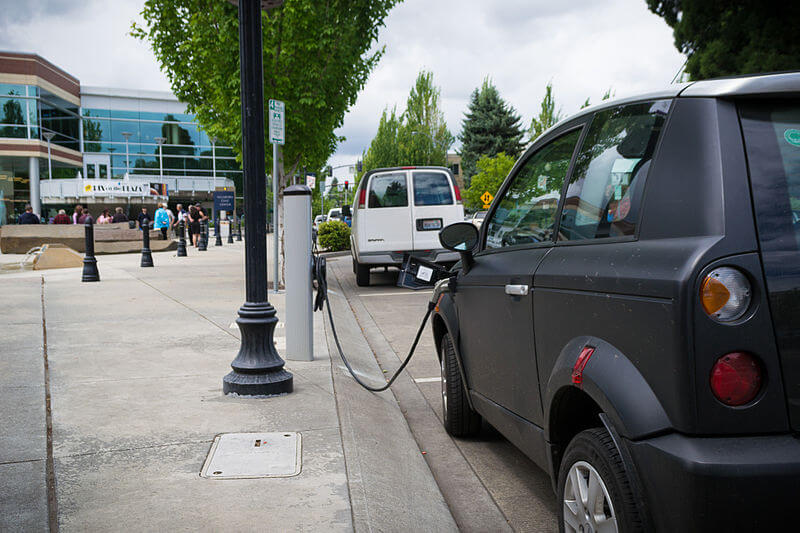In a major decision to give a boost to Electric Vehicles in country, Union Minister of State for Power and New & Renewable Energy (IC) and Skill Development & Entrepreneurship, Shri RK Singh has approved amendments in EV Charging Guidelines and Specifications. These Revised Guidelines and Specifications for charging infrastructure shall supersede the earlier guidelines and standards issued by the Ministry of Power on 14.12.2018.
“We have tried to address the concerns of EV owners in new guidelines”
Shri RK Singh, Union Minister of Power
Salient Features of Amendments
- In order to address the range of issues of the Electric Vehicle Owners, a phase-wise installation of an appropriate network of Charging Infrastructure throughout the country has been envisaged in the Guidelines ensuring that at least one Charging Station should be available in a grid of 3 Km X 3 Km in the cities and one Charging Station at every 25 Km on both sides of highways/roads.
- It has been envisaged that in the first phase (i.e. 1-3 years) all Mega Cities with population of 4 million plus as per census 2011, all existing expressways connected to these Mega Cities & important Highways connected with each of these Mega Cities may be taken up for coverage, while in the second phase (3-5 years) big cities like State Capitals, UT headquarters may be covered for distributed and demonstrative effect.
- To address the concerns in inter-city travel and long range and/or heavy duty EVs it has been provided that Fast Charging Station for long range and/or heavy duty EVs like buses/trucks etc., shall be installed at every 100 Kms, shall be installed one on each side of the highways/road located preferably within/alongside the Public Charging Station (PCS) mentioned above.
- Private charging at residences/offices shall be permitted and DISCOMs may facilitate the same.
- Public Charging Stations (PCS) shall be a de-licensed activity and any individual/entity is free to set up public charging stations, which has also been reiterated in the guidelines, subject to the conditions as specified in the Guidelines.
- Bureau of Energy Efficiency (BEE), a statutory body under Ministry of Power has been nominated as the Central Nodal Agency.
Types of Permitted Chargers
Further, the guidelines specifies the type of chargers of different standards (viz. CCS, CHAdeMO, Type-2 AC, Bharat AC 001) thus ensuring that the PCS owners have the freedom to install the chargers as per the market requirement.
| S. No. | Type of Charger | Charger Connectors | Rated Output Voltage (V) | No. of Connector Guns (CG) | Charging Vehicle Type (W= Wheeler) |
| 1 | Fast | Combined Charging System (CCS) (min 50 kW) | 200 – 750 or higher | 1 CG | 4W, |
| 2 | Fast | CHArge de Move Fast (CHAdeMO) (min 50 kW) | 200 – 500 or higher | 1 CG | 4W, |
| 3 | Fast | Type-2 AC (min 22 KW) | 380 – 415 | 1 CG | 4W, 3W, 2W |
| 4 | Slow / Moderate | Bharat DC-001 (15 KW) | 48 | 1 CG | 4W, 3W, 2W |
| 5 | Slow / Moderate | Bharat DC-001 (15 KW) | 72 or higher | 1 CG | 4W |
| 6 | Slow / Moderate | Bharat AC-001 (15 KW) | 230 | 3 CG of 3.3KW each | 4W, 3W, 2W |
To keep the PCS technology agnostic, it has been provided that any other fast/slow/moderate charger as per approved DST/BIS standards whenever notified can also be installed at the PCS. Thus, the Guidelines provide an extensive flexibility while ensuring a democratic choice to both EV owners and PCS providers to install the type and number of chargers.
Tariff for Charging the Electric Vehicles:
The tariff to be charged, from Public Charging Stations as well as from domestic consumers for domestic charging, by the DISCOMs and the Service Charges to be charged by these PCS from EV users have also been covered in the guidelines.
Private Charging:
- It has been provided that the domestic charging shall be akin to domestic consumption of electricity and shall be charged as such.
Public Charging:
- In case of PCS, it has been provided that tariff for the supply of electricity to PCS shall be determined by the appropriate commission in accordance with the Tariff policy issued under section 3 of Electricity Act 2003, as amended from time to time.
- As far as the Service Chargers at PCS are concerned, while it has been clarified that charging of EV is a service, to ensure that the incentives (financial or otherwise) provided to PCS owners in installation of charging stations are transferred to the EV owners, it has been provided that the appropriate agency/commission shall fix the ceiling of Service Charges in such cases.
References:
- Revised Guidelines for EV Charging Dated 01/10/2019 : Download Notification

